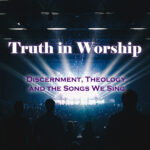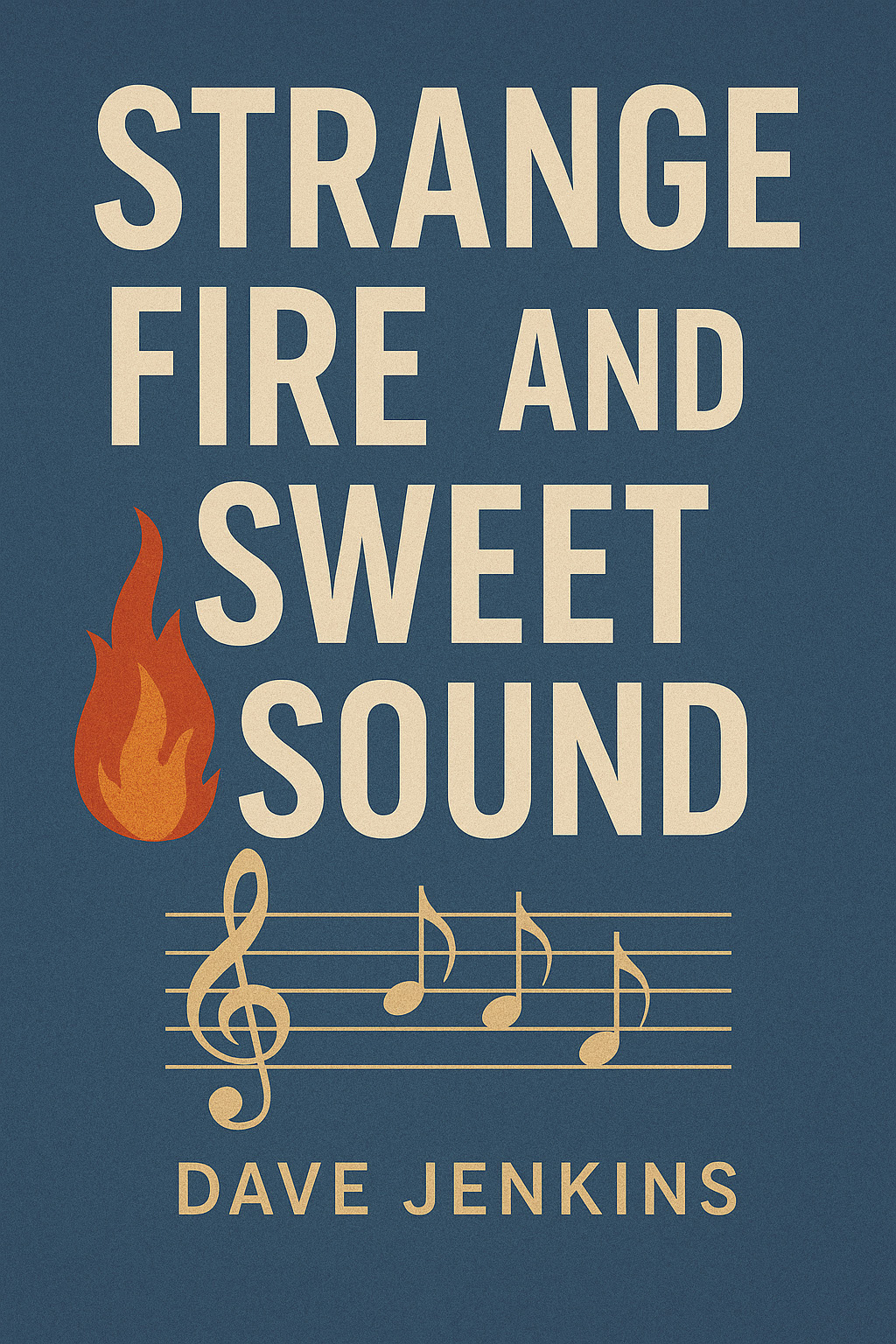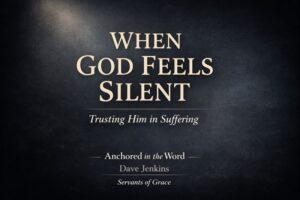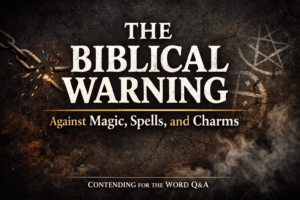⏱️ Estimated Reading Time: 6 min read
Strange Fire and Sweet Sound: The Dangerous Theology Behind Bethel and Similar Movements
By Dave Jenkins
Introduction: The Soundtrack of a Movement
Bethel Music has taken the global church by storm. Its soaring melodies and emotionally charged lyrics echo from megachurch stages to small-town sanctuaries. But behind the beautiful music lies a dangerous theological foundation—one that distorts the gospel, elevates experience over Scripture, and threatens the spiritual health of the Church. In this article, we’ll examine why biblical worship must be grounded in truth, how Bethel’s theology diverges from orthodoxy, and what pastors and churches must do to guard against compromise.
The Foundation of Biblical Worship: Spirit and Truth
Jesus declared in John 4:24, “God is spirit, and those who worship him must worship in spirit and truth.” True worship is not driven by emotional highs or cultural trends—it is anchored in Scripture. Worship must exalt God as He has revealed Himself, not as we feel or imagine Him to be. Colossians 3:16 reinforces this, commanding believers to let the word of Christ dwell in them richly as they sing psalms, hymns, and spiritual songs.
Historically, the Church has understood that worship is not entertainment but reverent response to divine revelation. The Reformers, particularly Calvin and Luther, restructured worship around the preached Word and congregational singing of Scripture-rich songs. Calvin emphasized simplicity and reverence, fearing that innovation would obscure the gospel. Luther harnessed music as a theological tool to teach congregations sound doctrine. In both cases, the goal was worship saturated in biblical truth.
Bethel’s Theological Errors: When Experience Replaces Scripture
Bethel Church in Redding, California, is at the heart of the New Apostolic Reformation (NAR)—a loosely affiliated movement that emphasizes modern-day apostles, miraculous gifts, and dominion over culture. Bethel’s teachings elevate personal prophecy, physical manifestations, and supernatural experiences above biblical doctrine.
Consider the practice of “grave soaking”—laying on the graves of deceased Christians to absorb their anointing. While Bethel has tried to distance itself from this, the practice has been promoted by leaders connected to the church. Likewise, “glory clouds,” angel feathers, and gold dust have been presented as signs of divine activity during services.
These phenomena aren’t simply unorthodox—they’re dangerous. They turn the focus of worship away from Christ crucified and risen, and instead draw attention to subjective, unverifiable experiences. Scripture warns us not to chase signs and wonders (Matt. 12:39) but to trust in the Word.
Music as a Trojan Horse for Bad Theology
Bethel’s music is one of its most powerful tools of influence. Songs like “Reckless Love” and “Goodness of God” are sung in churches across denominations. While many lyrics appear harmless—or even biblical—this music functions as a gateway to Bethel’s broader theological ecosystem.
“Reckless Love,” for example, while emotionally powerful, presents a confusing picture of God’s character. God’s love is lavish and undeserved, yes—but not “reckless.” Words shape theology. When churches adopt Bethel songs, they risk importing their doctrinal baggage as well.
When a church sings Bethel songs, they introduce their congregation to a brand and a ministry that promotes a false gospel of health, wealth, and supernatural signs. Many pastors assume that because a song sounds good and moves the heart, it must be spiritually sound. But emotional resonance is not the same as biblical fidelity.
Moreover, this isn’t just a theological danger—it’s a financial one. Every time a church uses a Bethel song, royalties flow back to Bethel Church through CCLI and other music licensing platforms. According to reports, Bethel brings in millions annually through its music ministry. That money goes on to fund Bethel’s School of Supernatural Ministry and their global efforts to spread NAR theology. When you sing a Bethel song, you’re not just borrowing lyrics—you’re fueling a movement.
The Seven Mountain Mandate and Dominionism
Bethel is also deeply tied to the Seven Mountain Mandate—a doctrine that asserts Christians must take control of seven spheres of society: religion, family, education, government, media, arts, and business. This ideology replaces gospel mission with cultural conquest.
Instead of proclaiming Christ crucified for sinners, the focus shifts to taking dominion over earthly institutions. This theology confuses the kingdom of God with the kingdoms of this world and undermines the Church’s true calling to make disciples of all nations. It’s a redefinition of the Church’s mission—from making disciples to making cultural warlords.
The Role of the Holy Spirit in Worship
Some may argue that Bethel’s worship is simply Spirit-filled. But we must ask: what does it truly mean to worship in the Spirit? The Holy Spirit never points to Himself or to ecstatic manifestations; He glorifies Christ and illumines the Word (John 16:13–14). True Spirit-filled worship exalts the Son through the Word.
Bethel’s worship often centers on subjective experience rather than objective truth. This misrepresents the Spirit’s role and risks leading people into spiritual confusion. Worship shaped by the Spirit will always align with Scripture, not compete with it.
What Does Faithful Worship Look Like?
Biblical worship is God-centered, Word-saturated, and theologically rich. It prioritizes truth over trend, reverence over experience, and depth over emotionalism. The Psalms, hymns, and spiritual songs the New Testament speaks of are meant to teach, admonish, and edify (Col. 3:16).
Faithful worship is marked by:
- Songs that exalt the triune God and proclaim the gospel.
- Lyrics grounded in Scripture, not mystical speculation.
- Leadership that values theological clarity and pastoral responsibility.
- A focus on Christ’s finished work, not personal encounters or signs.
A Word to Church Leaders
Pastors and worship leaders have a sacred responsibility to guard the flock from error (Acts 20:28–30). This includes vetting every worship song, teaching source, and theological influence. Using music from movements like Bethel, Hillsong, or Elevation without discernment invites confusion and compromise into the church.
To those who say, “But the lyrics are sound,” we must ask: Does our use of this song platform a ministry that teaches heresy? Are we subtly endorsing what we claim to reject?
Church leaders are not called to follow the crowd, but to shepherd the people of God with courage and conviction. Avoiding controversy is not the same as pursuing unity. Real unity is built on truth.
Conclusion: Worship That Pleases God
The Church must return to worship that is shaped by Scripture and centered on the gospel. We cannot afford to be careless in what we sing or whom we platform. Bethel and similar movements have popularized a worship culture that may feel powerful—but ultimately pulls hearts away from God’s truth.
Worship is not about chasing a feeling. It’s about fixing our eyes on Christ, proclaiming His truth, and glorifying the Lord with reverence and awe. May we be found faithful.
Reflection Questions:
- Do the songs we sing align with the theology we preach?
- Are we exposing our congregation to unbiblical movements by our worship choices?
- Have we trained our worship leaders in sound doctrine?
- Are we helping our people worship with discernment and joy?




